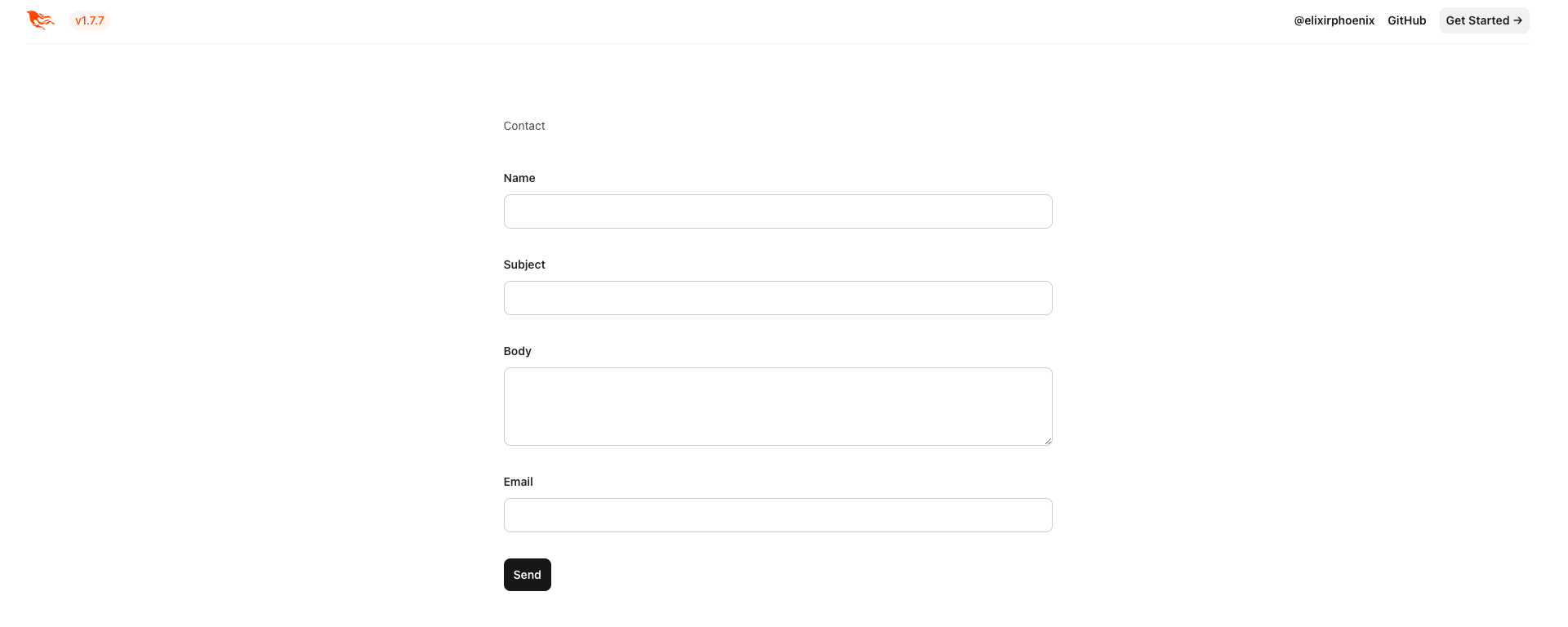The standard way to create LiveView forms is to use the to_form/1 helper by passing it a changeset structure, for example:
to_form(Accounts.change_user(%User{})))
However, situations can arise where we have a form without having to back it up with a changeset.
Why skip the changeset?
Ecto.Changeset is a tool for working with information from various sources. It provides validations, castings, and error handling. Typically, we create forms based on an Ecto schema, meaning they have a table in our database. However, there are situations where generating a changeset can be excessive or unnecessary, either based on a schema or in its schemaless form.
If we simply want to capture data without the need for complex validations, you might want to avoid using a changeset.
Let’s use a contact form as an example (assuming you already have a Phoenix project running):
defmodule MyAppWeb.ContactLive do
use MyAppWeb, :live_view
@impl true
def mount(_params, _session, socket) do
params = %{"name" => "", "subject" => "", "body" => "", "email" => ""}
{:ok, assign(socket, :form, to_form(params))}
end
@impl true
def render(assigns) do
~H"""
<div>
<.header>
<:subtitle>Contact</:subtitle>
</.header>
<.simple_form for={@form} id="contact_form" phx-submit="save">
<.input field={@form[:name]} label="Name" />
<.input field={@form[:subject]} label="Subject" />
<.input field={@form[:body]} type="textarea" label="Body" />
<.input field={@form[:email]} type="email" label="Email" />
<:actions>
<.button phx-disable-with="Saving...">Send</.button>
</:actions>
</.simple_form>
</div>
"""
end
@impl true
def handle_event("save", params, socket) do
{:noreply, socket}
end
end
And in the router.ex:
scope "/", MyAppWeb do
pipe_through :browser
get "/", PageController, :home
live "/contact", ContactLive # <-- add this
end
If we go to http://localhost:4000/contact, we’ll have our contact form:

As we can see, the only difference is that the helper to_form/1 will be passed a map instead of a changeset:
# with changeset
changeset = Accounts.change_user(%User{})
to_form(changeset)
# without changeset
params = %{"name" => "", "subject" => "", "body" => "", "email" => ""}
to_form(params)
If we test the form, we can see the following in the logs:

In this way we can continue taking advantage of the power of the helpers and the new components of the CoreComponents module.